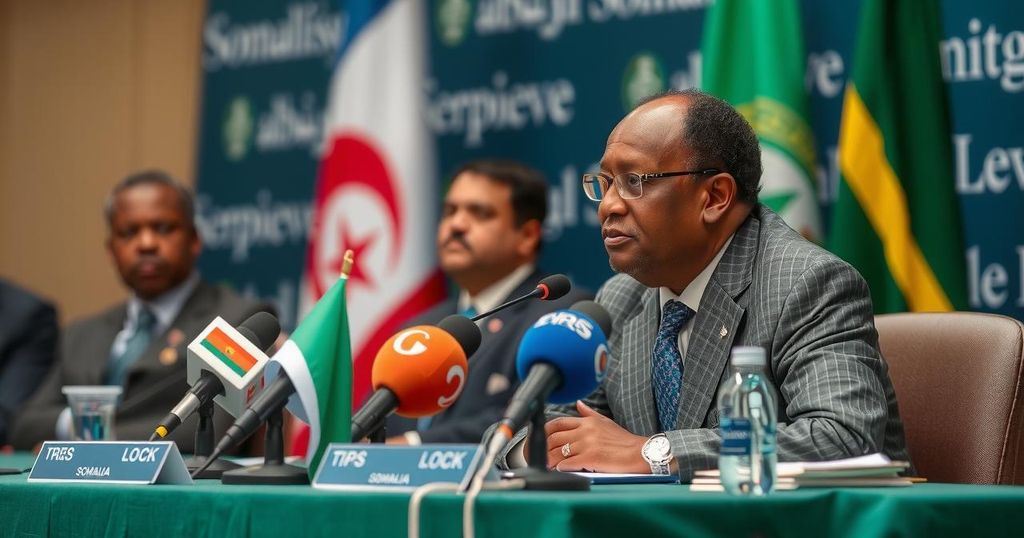Somalia’s Foreign Minister Denies Claims of Ethiopia’s Red Sea Access
Somalia’s Foreign Minister Ahmed Moalim Fiqi has denied allegations that the country agreed to grant Ethiopia access to the Red Sea. This controversy follows the Ankara Declaration, aimed at resolving tensions between the two nations, while Ethiopia’s recent MoU with Somaliland has raised concerns among neighboring countries, particularly Eritrea and Egypt, regarding regional stability.
MOGADISHU, Somalia – Somalia’s Foreign Minister Ahmed Moalim Fiqi has firmly rejected allegations that the nation has consented to provide Ethiopia access to the Red Sea, characterizing such reports as unfounded. He stated, “I categorically refute claims that Ethiopia has been granted access to the Red Sea. These baseless assertions lack any foundation. Somalia remains committed to protecting its sovereignty and ensuring transparency on national issues.” This denial comes in response to earlier statements attributed to Minister Fiqi, which hinted at an agreement made during the Ankara Declaration brokered by Turkish President Recep Tayyip Erdoğan on December 11, 2024.
The Ankara Declaration seeks to alleviate tensions between Somalia and Ethiopia, especially in light of Ethiopia’s disputed Memorandum of Understanding (MoU) with Somaliland, established on January 1, 2024. This MoU purportedly granted Ethiopia entry to the Red Sea, coinciding with Somaliland’s aspirations for international recognition as an independent entity. The agreement entails the formation of technical committees to address maritime disputes, with a set resolution deadline of mid-2025. Nevertheless, the deal has ignited significant controversy, particularly between Somalia, Eritrea, and Egypt, who oppose Ethiopia’s access ambitions due to concerns about regional stability.
Eritrean Foreign Ministry advisor Abdulkadir Idris has criticized the negotiations, asserting they jeopardize Somalia’s sovereignty and regional peace. He articulated, “The agreement is hasty and poorly conceived,” indicating frustration over Somalia’s rapid acceptance of the terms. Idris also cautioned that it could exacerbate existing diplomatic relations and create larger geopolitical tensions within the region.
The discourse surrounding Somalia and Ethiopia’s relationship is deeply rooted in historical tensions and recent diplomatic exchanges. The Ankara Declaration reflects ongoing efforts to mend relations amid disputes over territorial access and regional influence. Ethiopia’s interest in securing access to the Red Sea has raised alarms in neighboring countries that perceive such moves as destabilizing. Eritrea and Egypt’s strong objections underscore the complexity of regional alliances and the delicate balance of power in the Horn of Africa.
In conclusion, Somalia’s Foreign Minister has decisively refuted claims regarding Ethiopia’s access to the Red Sea, emphasizing the importance of national sovereignty and transparency. This controversy unfolds within a broader context of regional diplomacy, marked by Ethiopia’s aspirations and the apprehensions of neighboring states. The future of Somalia-Ethiopia relations and their potential implications for the Horn of Africa remain uncertain as this situation evolves.
Original Source: hornobserver.com




Post Comment